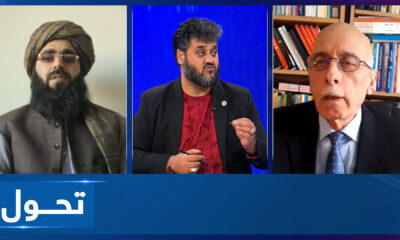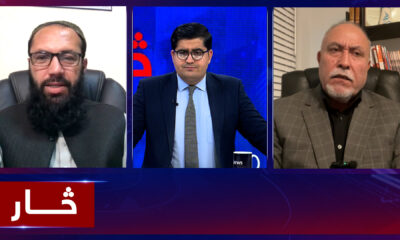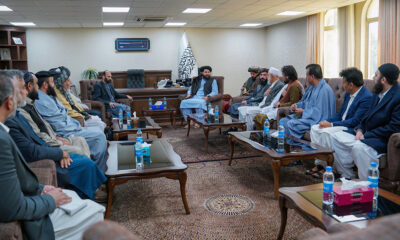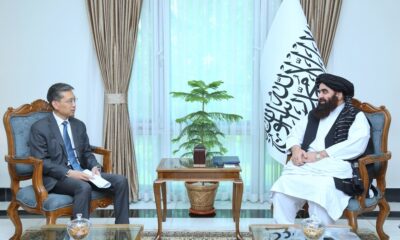Latest News
Khalilzad calls for peace talks; warns against military solution
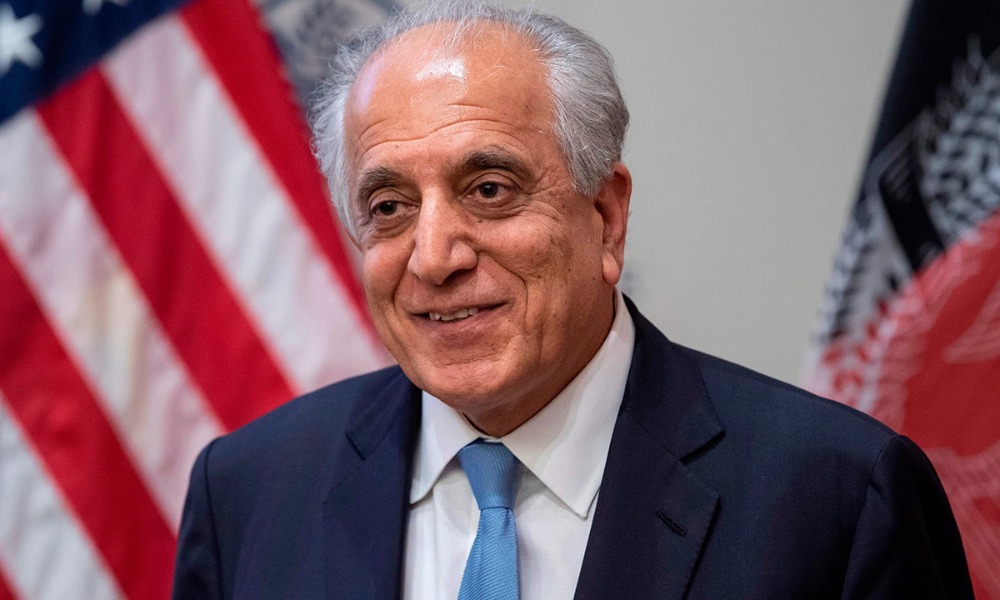
Zalmay Khalilzad, the U.S. special peace envoy for Afghanistan, has said the level of violence in Afghanistan is too high and that peace talks need to resume as soon as possible.
“Both sides have to be realistic about finding common ground. If there is no peace agreement, the alternative is not a Taliban victory. It is a long war,” he said.
Speaking to Germany’s Der Spiegel, Khalilzad said he believes the Taliban leadership is in control of its fighters on the ground but he warned “if groups inside the Afghan Republic start to divide and each go their separate ways – which is a possibility, and a dangerous one – that would encourage the Taliban, perhaps the hardliners, to seek a military solution.”
Asked what a “military solution” would mean for Afghanistan, Khalilzad said: “It would mean a repeat of the tragic period of the 1990s, when Afghanistan became the scene of a proxy war following the Soviet departure.
“Many of the leaders of the Taliban and the other Afghan groups remember that period. They remember that terrible mistakes were made: They didn’t come together, instead they each sought an advantage for themselves and that led to a war that destroyed Afghanistan. Our expectation is that the parties won’t repeat that mistake again,” he said.
Khalilzad went on to say the proposed peace conference in Turkey, which has been delayed due to the Taliban’s refusal to attend such a meeting until all foreign troops have withdrawn from Afghanistan, is one test to see whether the Taliban want to end the conflict through negotiations.
“The Turks have agreed, together with Qatar and the United Nations, to convene a meeting of the Afghan Republic and the Taliban to accelerate political negotiations. The Taliban so far have not agreed to the dates that were proposed. They said they haven’t yet received authorization from their leaders. But they do want prisoners released and they do want to be taken off the blacklist,” Khalilzad said.
Khalilzad pointed out that “war is expensive.”
He said this applied to both sides – to the Afghan security forces and to the Taliban. He also stated that significant numbers “are dying on all sides”.
But he noted that the Taliban have choices – choices that affect their futures.
“One future is international legitimacy, assistance, getting off the sanctions’ blacklist, and prisoners released. But that means negotiations and agreeing to a realistic political settlement.” Khalilzad said.
“The alternative is war. Even if they make continued gains, they’re not looking at an easy victory. And ongoing aggression on their part will mean continued isolation, not being accepted as a legitimate partner, not getting off the blacklist, no prisoners released, and the continued opposition from the international community working to prevent a military takeover.
“So this is a time for the Taliban to decide which path they want to take. And we are preparing ourselves, with our friends and allies, for both options. That’s the message that we have delivered to the Taliban,” he said.
Khalilzad said according to the Taliban, they “are working on their plan for a political settlement.”
On the Afghan Republic’s plan, Khalilzad said there had been 30 to start off with but this was now down to two.
“The negotiations – including the meeting in Turkey with facilitators – can be used to see how these plans might fit together for the future of Afghanistan. We strongly hope the UN, Turkey and Qatar can help through active facilitation.
“The Afghan security forces are a national institution worthy of support and we will keep supporting them,” he said.
But Khalilzad said if the Taliban fail to pursue a political settlement and pursue the line of war, he believes the Afghan security forces will resist and “we will support them”.
He warned however that Afghanistan’s recent history shows that efforts by any group to impose their will on the people by force leads to a “long war.”
Once again he reassured Afghanistan that neither the US nor the rest of the international community would abandon Afghanistan.
“We will have – when the withdrawal is completed – a new chapter in our partnership. Afghanistan is going to be at the very top of the recipients of U.S. assistance, foreign assistance which includes supporting the Afghan security forces, development assistance and humanitarian assistance. And our allies say the same,” he said.
Khalilzad also stated that the US is preparing for all potential outcomes, stating “the violence is bad”. He said their goal is to help end the conflict through a peace agreement.
“In a best-case scenario, there will be national reconciliation and everyone’s energies will focus on rebuilding lives and obtaining the peace dividend. But yes, things could get worse if there is no realistic agreement and the war continues – or, God forbid, that it escalates, and past mistakes are repeated. We, for our part, will do all that we can, short of getting involved again in a war, to prevent things from devolving.
“All Afghans have been affected by this war. Afghans living in Taliban areas have not been spared. They have been deprived of a lot. They deserve a better chance, as well as those who have benefited from the gains of the last 20 years. We’re preparing for all potential alternatives and we are very much committed to humanitarian support as well,” he said.
Khalilzad went on to say the Afghan security forces are a national institution worthy of support, which the US will continue doing. He also said Washington will maintain a robust embassy and will monitor the situation closely.
Asked about “what went wrong” with Afghanistan, Khalilzad stated that while the Republic has delivered on many fronts, there have also been challenges.
He said corruption has been a key problem and that the electoral process has been problematic at times.
“Over the long history of this war, there have also been mistakes made in executing the military strategy. The issue of sanctuaries for the opposition was not dealt with in a timely fashion,” he said.
On Pakistan, Khalilzad said: “We believe that Pakistan has a legitimate interest in Afghanistan and the Afghans should respect those legitimate interests. The legitimate interest is that Afghanistan’s soil should not be used by those hostile to Pakistan against Pakistan.”
He also stated that Pakistan soil should not be used by forces hostile to Afghanistan, against Afghanistan. “And we have been working hard, along with the United Kingdom, for the two countries to work on improving security cooperation and perhaps to reach a security agreement with each other. That’s an important part of our peace efforts,” he said.
Khalilzad said that if this peace effort does not succeed, and if there is no agreement between Pakistan and Afghanistan, Pakistan will suffer.
“Pakistan will be blamed because so much of the Taliban’s leadership lives in Pakistan. A failed peace also means missed opportunities for both countries. Leaders in Pakistan and Afghanistan have a common interest in economic connectivity and trade and development. And we are working hard with both, and with Central Asia, for these things. We believe peace in Afghanistan empowers that and makes that possible.”
Khalilzad went on to say that ultimately, the responsibility of whether peace is possible, lies with the leaders of the Afghan Republic and the Taliban.
“The Afghan leaders say they have learned from the past. But we will see. Will they put their country first, will they put their people first or will they pursue some separate agenda? Will they put the future of the current generation, our future generations first? Time will tell whether they will make the right choice or repeat past mistakes. And the Taliban have an important historic choice to make,” he said.
Latest News
Russia’s special envoy meets with IEA ministers, discusses bilateral issues
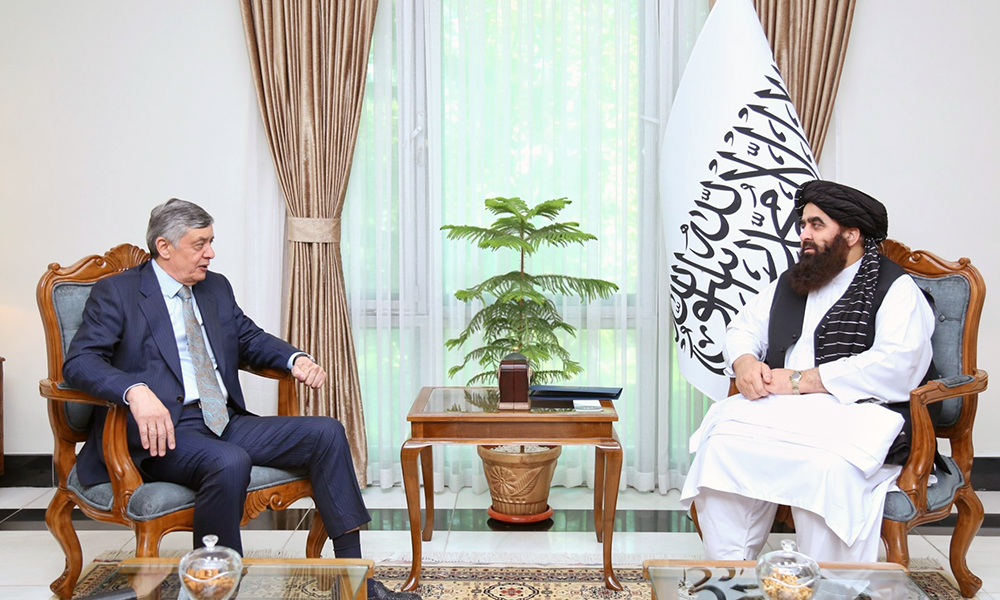
Zamir Kabulov, the Special Representative of the President of the Russian Federation for Afghanistan, who is on a visit to Kabul, has met with the Minister of Foreign Affairs of the Islamic Emirate Mawlavi Amir Khan Muttaqi for talks on political and economic issues between Afghanistan and Russia.
Regional issues were also discussed.
Muttaqi expressed appreciation for Russia’s support at regional and international meetings and emphasized the need to further strengthen political ties and trade relations between the two countries.
He also said that Afghanistan’s relations with countries in the region are flourishing and currently Afghanistan has active embassies in all neighboring countries.
Muttaqi called Afghanistan’s relations with Russia important and said the current ground realities of Afghanistan should be understood and that there is no reason why the United Nations needs to appoint a special representative to deal with Afghanistan.
He said the Afghan government is in talks with the UN over this issue and will make public its position after sufficient clarification has been provided on the agenda and composition of the next UN meeting in Doha.
Kabulov in turn stressed that any meeting held on Afghanistan should be convened with the approval of the Afghan government.
He said it is important for the United Nations to have the Afghan government approve and attend the next Doha meeting.
He said this series of meetings will not yield positive results without the Afghan government being in agreement.
He also said governments of the world should maintain relations with the Afghan government through bilateral mechanisms instead of multilateral contact mechanisms.
Kabulov emphasized that the US should release Afghanistan’s frozen assets and end its unilateral and “illegal” restrictions on the country’s banking system.
He also said Russia and Afghanistan need to improve coordination between them and went on to say he hoped Muttaqi would visit Moscow during the course of this year.
Kabulov also met with acting Minister of Interior Affairs Sirajuddin Haqqani.
This meeting focused on bilateral relations between both countries while political and security issues pertaining to the region were also discussed, the ministry said.
Latest News
Afghans in Europe Union members meet with ministers of defense, mining
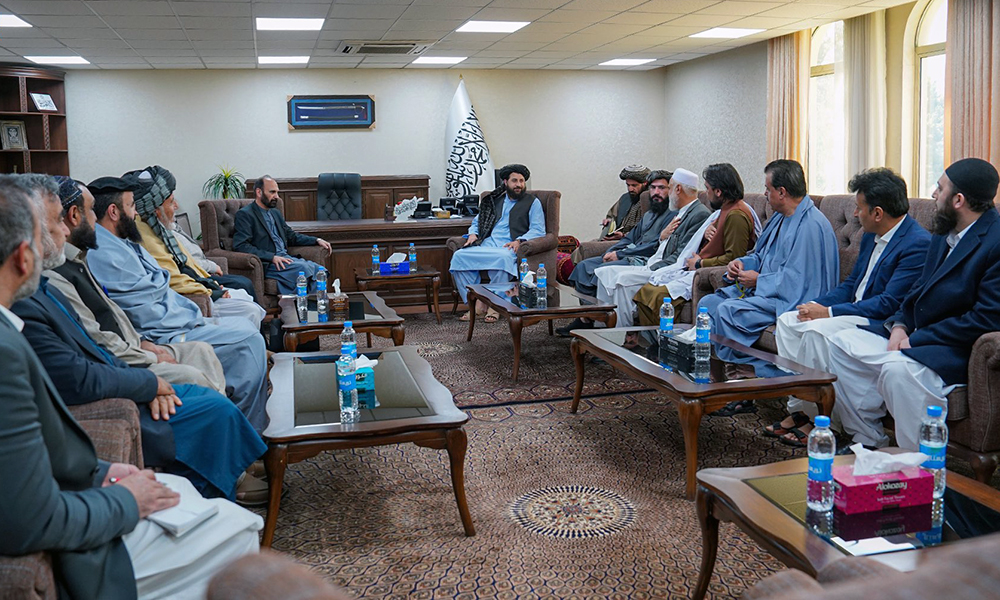
Representatives of the Union of Afghans living in Europe on Tuesday met with the ministers of defense and mining for talks on several issues.
Acting Minister of National Defense Mohammad Yaqoub Mujahid said in a meeting with union delegates that the current security situation in the country has provided an opportunity for everyone to participate in the progress of Afghanistan.
Mujahid added that there were still some problems in certain areas but that these will be removed.
In this meeting, Mujahid called Afghanistan the common home of all Afghans and said the problems in the country will be solved soon.
“The problems that exist in some issues will be solved soon; but there was nothing more than the security that has been revealed in this land today with the help of Allah and with the sacrifices of our people,” he was quoted in a statement as saying.
According to the statement, a number of Afghans, who only moved to the country after the Islamic Emirate’s takeover, expressed their satisfaction with the current situation in the country.
In addition, Shahabuddin Delawar, acting Minister of Mines and Petroleum, also met with union representatives and asked Afghans living abroad to return to Afghanistan and contribute to the country’s progress.
In this meeting, the Afghans living in Europe asked Delawar to provide better facilities to Afghans who want to invest in the country. The Ministry of Mines and Petroleum says that Delawar also asked the visiting delegation to return to Afghanistan and contribute to the country’s development.
Earlier, in a meeting with a number of other officials of the Islamic Emirate, including the political deputy of the Prime Minister and the Acting Minister of Foreign Affairs, this delegation emphasized the need to strengthen the system and provide work and education to Afghan girls and women.
Latest News
Regional developments require Afghanistan, China’s full coordination to protect interests: Muttaqi
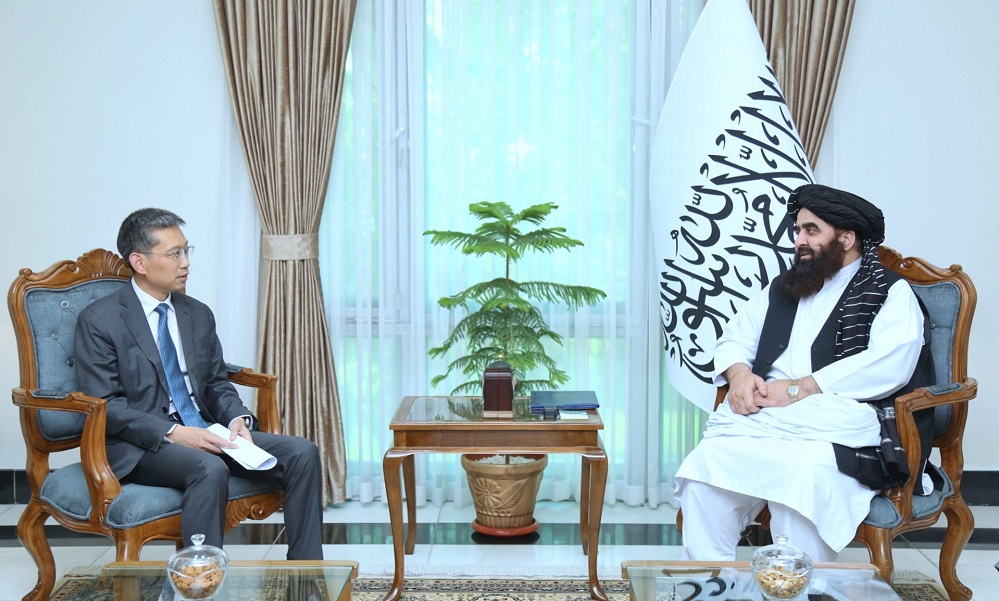
Acting Minister of Foreign Affairs Amir Khan Muttaqi has said that recent events and developments in the region require that Afghanistan and China continue their cooperation in full coordination so that they can protect their common interests.
Muttaqi stated this in a meeting with the Chinese ambassador in Kabul Zhao Xing.
The Ministry of Foreign Affairs said in a statement Tuesday that the two sides discussed bilateral political, economic and cultural cooperation between Afghanistan and China and the recent developments in the region.
Muttaqi expressed his satisfaction with the expansion of political, economic and cultural relations between the two countries and said that the Islamic Emirate has created good opportunities in the field of trade and investment.
He pointed out that the increase in the export of pine nuts to China and the progress in the Mes Aynak and Wakhan Corridor projects are clear examples of this policy of the Islamic Emirate.
According to the Ministry of Foreign Affairs’ statement, the Chinese ambassador considered the developments in various fields with Afghanistan as positive and added that he seeks to encourage Chinese businessmen and investors to play their role for long-term economic cooperation with Afghanistan.
He also said that his country is considering ways of bilateral cooperation and resources regarding Wakhan Corridor.
-

 Business4 days ago
Business4 days agoCommerce ministry inks 10 MoUs to boost development of small and medium-sized businesses
-

 Sport4 days ago
Sport4 days agoRashid Khan threatens BBL pullout after Australia postpones Afghanistan T20I series
-

 Latest News5 days ago
Latest News5 days agoOver 6,000 acres of land cleared of poppies in Badakhshan
-

 Latest News5 days ago
Latest News5 days agoMSF ‘deeply concerned’ over new phase of deportations of Afghans from Pakistan
-

 Sport3 days ago
Sport3 days agoAfghanistan Champions League kicks off with grand opening ceremony
-

 Latest News2 days ago
Latest News2 days agoPakistan’s frontiers minister stresses ‘dignified’ return of Afghan refugees
-

 Regional4 days ago
Regional4 days agoIran’s foreign minister downplays drone attack, says Tehran investigating
-

 Latest News4 days ago
Latest News4 days agoTen people killed by floods in Helmand





